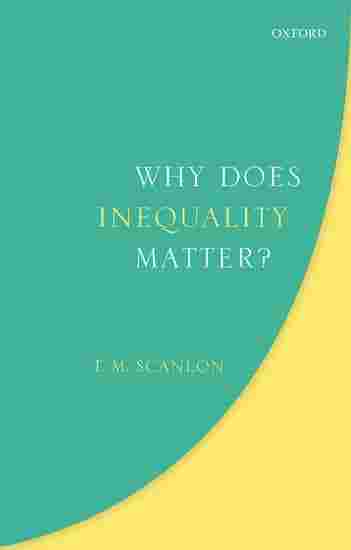 Abstract: Why Does Inequality Matter? is the long-awaited book-length development of T. M. Scanlon’s views on objectionable inequality, and our obligations to eliminate or reduce it. The book presents an impressively nuanced and thoughtful analysis as well as succinct explanations of different objections to various forms of inequality. It is not only set to further cement Scanlon’s influence on philosophical debates about equality but also makes a good guide to the problems of inequality for the nonspecialist reader. The book is not without faults, however. Even within a pluralist approach to inequality such as Scanlon’s, it is not sufficiently clear what, if anything, his specific objections to status inequality, and to control over other people’s lives, have in common with his other egalitarian objections to inequality of political influence, opportunity, and income and wealth—or whether, in the case of control, the objection is egalitarian at all.
Abstract: Why Does Inequality Matter? is the long-awaited book-length development of T. M. Scanlon’s views on objectionable inequality, and our obligations to eliminate or reduce it. The book presents an impressively nuanced and thoughtful analysis as well as succinct explanations of different objections to various forms of inequality. It is not only set to further cement Scanlon’s influence on philosophical debates about equality but also makes a good guide to the problems of inequality for the nonspecialist reader. The book is not without faults, however. Even within a pluralist approach to inequality such as Scanlon’s, it is not sufficiently clear what, if anything, his specific objections to status inequality, and to control over other people’s lives, have in common with his other egalitarian objections to inequality of political influence, opportunity, and income and wealth—or whether, in the case of control, the objection is egalitarian at all.
Keywords: T. M. Scanlon, equality, inequality, pluralism, status, control
A full version of this review essay is available to subscribers only. Click here for access.
More in this issue

Spring 2019 (33.1) • Essay
Secessionist Conflict: A Happy Marriage between Norms and Interests?
In secessionist conflicts, actors tend to choose norms that align with their interests. But there are important outlier cases that complicate this picture, writes Rafael ...
Spring 2019 (33.1) • Essay
Introduction: Balancing Legal Norms, Moral Values, and National Interests
How do states reconcile national interests with legal norms and moral values? One answer lies in the concept of good international citizenship.
Spring 2019 (33.1) • Review
Crime and Global Justice: The Dynamics of International Punishment, by Daniele Archibugi and Alice Pease
In this book, Archibugi and Pease survey familiar territory, but they distinguish their contribution by using case studies to tell their story, focusing on the ...